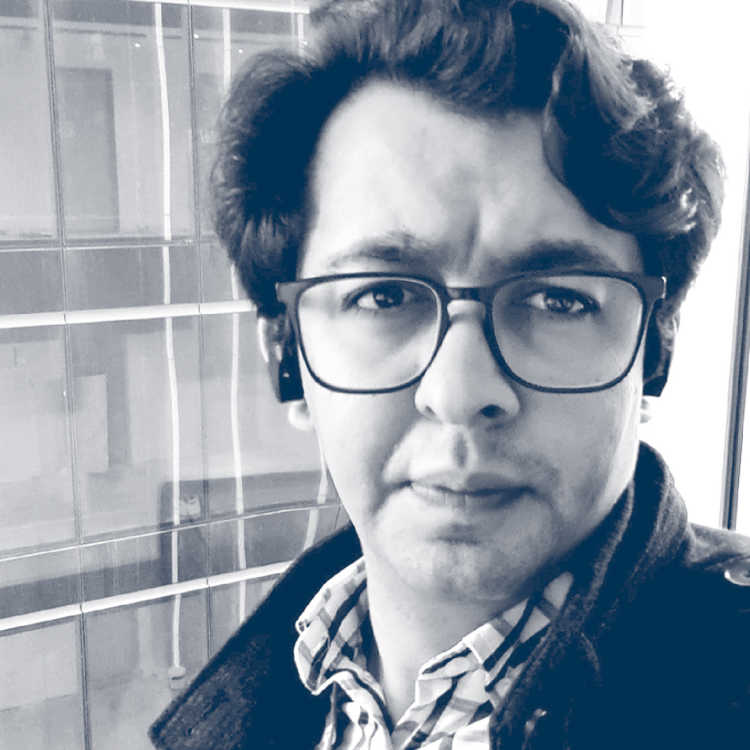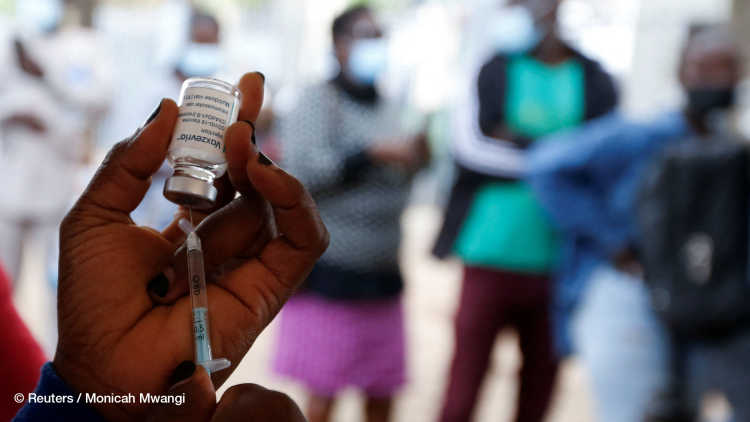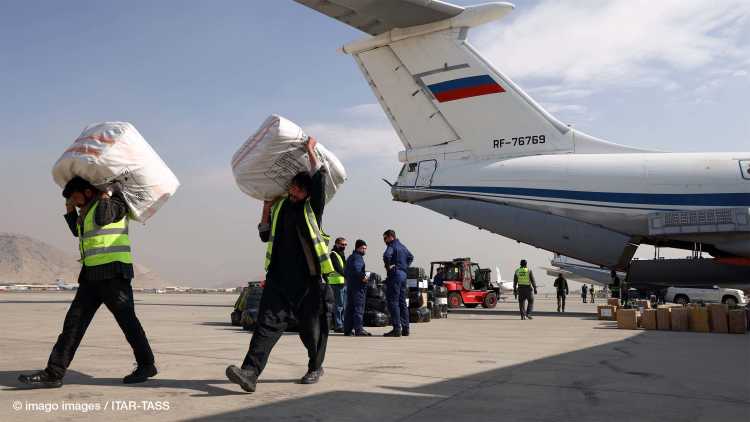- Home
- Publications
- GIGA Focus
- Elections and Government Legitimacy in Fragile States
GIGA Focus Africa
Elections and Government Legitimacy in Fragile States
Number 7 | 2021 | ISSN: 1862-3603
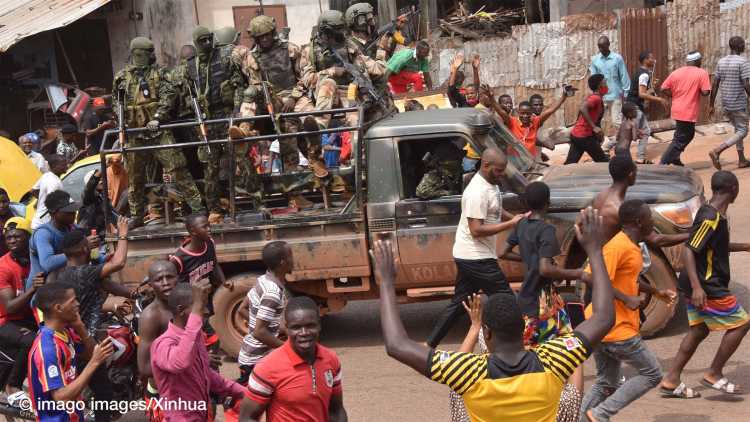
Within just one year, the world witnessed the collapse of elected governments in Mali, Afghanistan, and Guinea. While the power grabs by military juntas in Mali and Guinea and by the Taliban in Afghanistan caused fear among the respective populations, many citizens were also willing to acquiesce to the overtaking forces, because the deposed civilian governments were perceived as failing and corrupt. These developments highlight important lessons about government legitimacy in fragile states:
There is more to government legitimacy than elections. The holding of elections alone often does not suffice to render a government legitimate in the eyes of citizens. Questionable or botched elections can do more harm than good to government legitimacy.
In weak and fragile states, governments cannot rely on citizens’ acceptance of state institutions to legitimate their authority. They must find alternative ways to continually legitimate their rule in the eyes of citizens.
Insights from Burkina Faso suggest that government legitimacy can be improved by addressing problems of state–society relations. Even in communities that have very strained relations with the state, most citizens actually desire greater state presence and would be willing to give state institutions and security forces the benefit of the doubt – if they were perceived to be doing more to protect people’s safety and livelihoods.
If the conditions are right, local governments can play a crucial role in mitigating the central state’s deficient capacity and legitimacy. In some areas, local governments are the most powerful and legitimate political actors in citizens’ lives.
Policy Implications
In dealing with governments that are deficient in legitimacy, international actors should be guided by a careful analysis of state–society relations. Calls for rapid elections are no panacea, and elected governments should not automatically be considered legitimate representatives of society. Instead, international actors should focus on identifying and supporting societal changes that are prerequisites for more legitimate governance.
The collapse of elected, civilian governments – as in Mali in August 2020, Afghanistan in August 2021, and Guinea in September 2021 – brings questions of government legitimacy to the fore. The military coups in Mali and Guinea and the power grab by the Taliban in Afghanistan neither came as a surprise, nor were they seriously contested. Popular resistance was largely absent, and this was not just a consequence of fear: it is also an indication both of the dearth of legitimacy the ousted civilian governments had and of the momentary joy some citizens felt at the downfall of their morally bankrupt political elites.
However, as the shockwaves of these regime collapses abate, the respective de facto governments find themselves struggling to legitimate their claims to power, and the international community is attempting to determine the conditions under which these de facto governments should be recognised. Many observers look to elections as a potential solution, but the problems of government legitimacy run much deeper.
This analysis will discuss the complex relationship between elections and government legitimacy in fragile states, drawing on the aforementioned cases and on new data from Burkina Faso – a case that holds important lessons for the whole Sahel region and for fragile, conflict-affected states elsewhere in the world.
Elections and Government Legitimacy
Government legitimacy can be understood as the extent to which citizens consent to being governed (Greene 2016) – meaning, their acceptance of the government’s right to rule. Government legitimacy is different from international recognition: the fact that a government is recognised by foreign powers does not necessarily imply that it has legitimate authority in the eyes of citizens. It is also distinct from state legitimacy – the extent to which the state itself is accepted by citizens – but state and government legitimacy often overlap very closely.
There are various factors that can influence government legitimacy. Paramount among them is whether the state as such is accepted by citizens. In strong, established states, governments can rely on the long-standing legitimacy of state institutions to justify their authority. In weak and fragile states, government legitimacy depends more directly on the government’s interactions with society. In both fragile and consolidated states, perceptions of procedural fairness in how government institutions operate and how their leaders are selected are one of the central sources of legitimacy (Levi, Sacks, and Tyler 2009). Beyond procedural fairness, citizens’ consent to being governed can also stem from government effectiveness (Mcloughlin 2015). Citizens tend to consent to government authority if governments act in their best interest and government authority proves itself useful in citizens’ lives. Thus, government legitimacy is influenced not only by fairness and inclusiveness but also by its performance (Schmelzle and Stollenwerk 2018).
Elections play a prominent role in legitimising government (Anderson et al. 2005). If elections are free and fair, they are a way for citizens to actively delegate authority to the government. If voting is non-compulsory, as it is in most countries, the act of voting signals that citizens consent to the process by which political leaders are selected. Furthermore, elections ensure that the incumbent leaders have at least a minimum level of political support (although elections cannot always guarantee that a majority of citizens support the incumbent government) and that even those who do not politically agree with the government retain a certain level of agency and control over the allocation of political authority in the future. Therefore, the existence of free, fair, and competitive elections, with high electoral participation, is a strong indicator of legitimate government, as well as one potential source of government legitimacy.
Elections are also a test case for the rule of law and the fairness of political institutions. They are often the focus of attempts to manipulate or subvert democratic institutions and to intimidate dissenting citizens, as well as often being a source of public protest and resistance against a government. Especially in fragile and conflict-affected states, elections tend to be embedded in weak and contested political institutions. If elections are procedurally fair and inclusive, they can send signals of collective consent to a government’s authority. Conflictual, fraudulent, or non-inclusive elections can signal the opposite: that a government was unable to obtain the voluntary consent of a majority of the population and therefore resorted to electoral manipulation.
In fragile and conflict-affected states, the relationship between elections and government legitimacy is complex. On the one hand, elections can be decisive moments for government legitimacy (Berman et al. 2019). On the other hand, government legitimacy depends on more than just elections, as the authority of the state itself is contested. If the state is failing, it becomes difficult for governments to derive legitimacy from formal political institutions and procedures alone. Governments must find ways to simultaneously legitimise their authority within the state’s political system and the state’s authority in citizens’ lives.
Afghanistan, Mali, and Guinea: Elected Governments without Legitimacy
For many years, Western donors’ and diplomats’ rhetoric in Afghanistan, Mali, and Guinea was centred on principles of “country ownership” and elected governments being “in the driver’s seat.” To some extent, this rhetoric attributed a degree of sovereignty and legitimacy to the elected governments that insufficiently reflected their actual struggles: poorly accepted electoral processes, states virtually non-existent outside the major government installations, and persistent conflicts and grievances that the formal political institutions were unable to address.
The fate of Afghanistan’s civilian government is inextricably linked to foreign involvement. Under international watch, a constitution was adopted and elections held in 2004. However, by the end of President Hamid Karzai’s first term in 2009, Afghanistan’s political system was already unravelling. Opium production had reached unprecedented levels, fuelling both the Taliban insurgency and corruption up to the highest levels of government. While the International Security Assistance Force (ISAF) attempted to curb the Taliban insurgency with a surge of foreign troops and aid money, prospects for the Afghan government to achieve broad-based societal legitimacy were rapidly waning. Control of government had become too lucrative and informal power-sharing arrangements too integral to the emerging system of kleptocracy to be subjected to the vagaries of a democratic process. With the 2009 elections postponed, Karzai refused to step down at the end of his term to make way for an interim government. The delayed 2009 elections were marred by fraud and error, and amidst political turmoil, a runoff election was cancelled as the opposition leader withdrew. In the subsequent 2014 elections, accusations of election fraud and violent interference by the Taliban were so fundamental that the election results themselves could not provide a viable basis for the transfer of power. A 50/50 power-sharing deal was brokered between President Ashraf Ghani and opposition leader Abdullah Abdullah. By 2019 voter turnout had dropped to less than 20 per cent, with Ghani leading official counts by a razor-thin margin and Abdullah contesting the result, triggering a political crisis. Again, the power vacuum was not resolved through a democratic process, but by a power-sharing deal that was cut when the United States threatened to withdraw USD 1 billion in aid. Thus, in the final throes of the pre-Taliban government, elections were no longer a mechanism for allocating political power and reaffirming government legitimacy but a mere charade, in part motivated by the need to pacify foreign donors.
When Mali’s civilian government was elected in 2013, it, too, was a product of international intervention. In 2012 an ethnic rebellion in Northern Mali had caused the government to collapse and fall victim to a military mutiny. In the power vacuum, rebel groups were able to drive government forces out of vast areas of the country but unable to hold that territory, as jihadist groups, which had been operating in Northern Mali since the early 2000s, outcompeted the ethnic rebel organisations with superior weaponry and greater financial means. International military intervention, supported by the French military, prevented immediate state collapse and forced the military junta to agree to elections. In the elected government of President Ibrahim Boubacar Keïta, international donors and diplomats had a formally legitimised “partner,” albeit one substantially dependent on international military presence and foreign assistance. Meanwhile, critical societal conflicts and grievances went unresolved. Corruption and exploitation of the state by the ruling classes remained pervasive. The Algiers Accords – the political settlement between the Malian government and rebel groups in Northern Mali – failed to provide a political solution to the crisis, as jihadist groups, which were not party to the agreement, had become the dominant force challenging and attacking the state. Many observers agree that the government and its international partners were unable to contain the jihadist threat due to, among other problems, the dysfunctional, unaccountable, and institutionally corrupt structure of the military. Despite collusion with jihadists at various levels, abuses against civilians, embezzlement of military property, and a growing tally of military losses (in many senses), no senior politician dared to challenge the military or hold it accountable. No political efforts were made to fundamentally reform the security sector, so the government lacked the ability to protect the population and mobilise society against the common jihadist threat (Matei 2021). As the situation became untenable, a coup became increasingly attractive to the military, as it allowed the military both to evade political accountability for its failures (and pressures towards security sector reform) and to harness not only society’s frustration with the morally bankrupt political class but also the growing anti-French sentiment. The coup-within-a-coup of 2021, in which military ruler Assimi Goïta attempted to usurp full personal authority over the military transition government, can be seen as a continuation of military elites’ efforts to evade accountability. The prospect that elections could break the cycle of institutional corruption is slim (International Crisis Group 2021).
Guinea differs from Afghanistan and Mali in that the transition to civilian rule was brought about by internal processes, although foreign powers did exert an outsize influence over a government that depended massively on foreign aid and mining revenues from foreign corporations. In 2010 a bullet in the head of then-dictator Moussa (now Moïse) Dadis Camara had opened up an unlikely opportunity for a transition to civilian rule. Yet, from the beginning, this episode was marked by unresolved ethnic divisions. Fulani constitute the largest ethnic group, but no Fulani has ever controlled government. When Guinea held its first competitive presidential elections in 2010, Fulani-speaking candidate Cellou Dalein Diallo came out first but lacked an absolute majority. In the runoff elections, second-placed Alpha Condé managed to turn the tables with support from smaller parties, but the results were not uncontroversial, in part because of the unconvincing quality of the voter registry and evident deficiencies in the electoral process. Among international donors, however, the elections triggered a massive inflow of assistance, which, at times, was justified with the idea of paying citizens a “democracy dividend” to increase their support for the elected government. Far from cultivating democracy, though, Condé moved quickly to instrumentalise the government for political and material gain, instead of reaching out across ethnic lines and working jointly with the opposition to fix deficiencies in the country’s faltering electoral institutions. Foreseeably, Condé’s re-election in 2015 was accompanied by angry protests and mob violence, to which the government reacted with increasing repression. As Condé’s last presidential term was set to expire in 2020, the ageing president imposed a constitutional referendum that would allow him to circumvent term limits. This, again, was accompanied by massive civil unrest, growing ethnic tensions, and escalating repression. Riots erupted with the release of the 2020 election results. Following the contested elections, Guinea’s political system continued to unravel to such an extent that in 2021 audacious military officers decided to seize the day and the state.
The Afghan, Malian, and Guinean experiences highlight a profound mismatch between the legitimacy Western donors and diplomats attributed to elected governments and the extent to which these governments were actually considered legitimate by their own societies. By ignoring the legitimacy deficits of elected, civilian governments, rather than treating that lack of valid authority as the political emergency that it was, Western powers may have contributed to their eventual failure.
Burkina Faso: The Challenges of Building Legitimacy beyond Elections
While electoral democracy in Afghanistan, Mali, and Guinea may never have had a realistic chance of succeeding, Burkina Faso’s government, although confronted with similar patterns of fragility, started out with strong electoral legitimation. A popular revolution put Burkina Faso onto a pro-democracy trajectory in 2014. The backlash arrived in September 2015, when the presidential guard seized power and arrested members of the transition government. However, the coup attempt was met with determined resistance by citizens and civil society organisations. The lack of popular support for the coup d’état prompted the army to march on the capital city, Ouagadougou, to depose the junta and reinstate the transition government. The arrest of the coup plotters paved the way for free, fair, and competitive elections. The results were accepted immediately by all major candidates – a strong start for elected president Roch Marc Christian Kaboré and the diverse but cooperative parliament. With increased political freedoms, a vibrant civil society, and a newfound humility among the political class, hopes were high that Burkina Faso could develop into a stable pluralist democracy, comparable to Ghana or Benin.
However, unlike its southern neighbours, Burkina Faso has been afflicted with growing violent extremism and internal conflict that have shaken the foundations of the state and put government legitimacy to the test. During the power vacuum of 2015, jihadist groups, who had been tacitly operating along Burkina Faso’s borders, had begun to infiltrate the country and to confront the state. Simultaneously, a surge in banditry and petty crime swept through the country, causing communities to arm themselves and establish self-defence militias to address the lack of public security. The military, unprepared and ill equipped for an asymmetric war with jihadist groups, made a series of strategic and tactical mistakes that left security forces vulnerable to attacks and strained their relations with the local population. As a consequence, jihadist groups were able to ramp up local recruitment, intimidate the population, and create a rift between state institutions and local communities. They targeted state representatives, teachers, and local leaders, forcing them to flee the conflict-affected areas. As civilians increasingly fell victim to military operations, security forces struggled to sustain the cooperation of the local population in conflict-affected areas. This created a downward spiral of deteriorating security, escalating local conflicts, and withdrawal of the state.
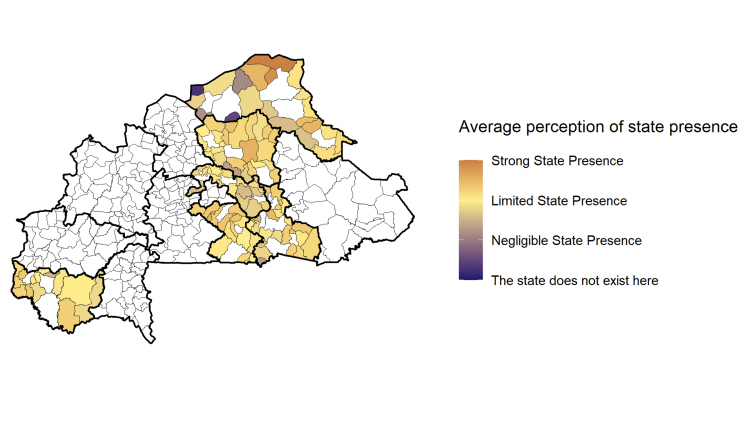
The armed conflict has exposed a range of long-standing issues in state–society relations. For decades, rural areas of the country had been underserved in terms of public service provision, and interactions between local communities and the state had often been limited to attempts to tax, to regulate, and to instil political clientelism, without offering much value in terms of public goods in return (Englebert 1998). The long-standing neglect of rural communities by the state contributed to jihadists’ ability to attack the fragile social order. It enabled them to intimidate local populations, gain control over revenue sources (such as gold mines and smuggling routes), and instigate interethnic tensions and violence by meddling in pre-existing local conflicts. As a result, more than 1.3 million people have been internally displaced (UNHCR 2021), and many remain outside the reach of the state’s services. The COVID-19 pandemic and its economic fallout have further contributed to the isolation and economic deprivation of many rural communities.
Increasingly, the conflict has also had repercussions on the electoral system. In the November 2020 national elections, in which Kaboré was re-elected, almost 600,000 registered voters (about 10 per cent of the electorate) were excluded from the polls, because election authorities were unable to access the active conflict zones. Many of these disfranchised voters were ethnic Fulani and Tuareg. This is problematic, because especially the Fulani population is increasingly stigmatised, as jihadists pose as defenders of Fulani interests. This not only created new political tensions but also weakened the role of elections as a unifying source of government legitimacy.
In this situation, government legitimacy is under threat in several respects: How will the political system be able to accommodate those groups who were effectively excluded from the elections? Will the state’s security forces be able to (re)gain the trust of local communities in the conflict-affected areas? Can the government overcome the scepticism of rural communities towards the state, in times when rural populations are facing unprecedented levels of hardship, threat, and isolation?
To better understand the depth of Burkina Faso’s crisis of state legitimacy, Recherche expérimentale sur la gouvernance locale au Burkina Faso (REGLAB), a GIGA-led research partnership with the government of Burkina Faso, collected fine-grained survey data on citizens’ views of the state just prior to the COVID-19 pandemic. We surveyed over 7,000 citizens in 117 rural communities that covered 6 of Burkina Faso’s 13 regions and all major geographic areas, from North to South. The results suggest that there is much that can be done to strengthen government legitimacy, especially in the rural areas:
Citizens’ demands for a more present state have not (yet) been upended by the conflict. Neither the growing civilian death toll of security operations nor the government’s failure to protect its citizens from jihadist attacks have led the majority to reject the state altogether. Approximately 90 per cent of respondents expressed the desire for greater state presence, including a majority of Fulani and Tuareg respondents (83 and 76 per cent, respectively) – the ethnic groups that have suffered most from abuses by security forces. Thus, a vast majority of rural citizens, including of Fulani and Tuareg minorities, have not given up on the state, but rather long for a state that does more to protect them.
Despite the abuses that have occurred, many citizens are still willing to give the security forces a chance. Almost half of the surveyed citizens believed that there are changes security forces can make to increase public trust. Most recommendations revolved around responsiveness to local security needs – protecting communities, listening to their needs, and being responsive instead of repressive or threatening. By becoming more responsive to local security needs, the government could benefit from a currently underexploited source of legitimacy.
Perceptions of state presence (Figure 1) correlate with local public service provision, which we have been tracking since 2014: in areas underserved in terms of public services, citizens are more likely to perceive the state to be absent from their lives.
Elected local governments – which were created only in 2006 – could play an essential role in restoring government legitimacy in areas where the central state is weak. In 60 of the 117 rural communes we surveyed, elected local governments were perceived to be the most powerful institution (followed by the government in 32, self-defence militias in 10, security forces in 9, traditional authorities in 3, and jihadists in only 1 commune, see Figure 2). The central government could capitalise on the influence and legitimacy of these elected local governments by involving them in the planning and monitoring of security operations, developing strategies to become more responsive to local needs, and prioritising efforts to defuse intercommunal conflicts.
Thus, despite the challenges of running elections in times of conflict and COVID-19, there are ways for Burkina Faso’s government to strengthen its legitimacy in the conflict-affected areas. Its efforts should focus on demonstrating the state’s usefulness to citizens.
Stopping dysfunction and abuses by the security forces will be the most crucial aspect of strengthening government legitimacy, but it is also the politically most challenging step, requiring a paradigm shift on the part of military leaders and new forms of civilian and democratic oversight. Citizens are acutely aware of dysfunction and corruption in the security forces, and they blame the elected government for it, as exemplified by the mass protests after the November 2021 attack on the Inata military post (Jeune Afrique 2021). At the same time, citizens’ attitudes suggest that it is not too late for the military to rethink its role in society. If the military changes its approach, it could substantially increase its support from communities in conflict-affected areas and its effectiveness at combatting jihadist infiltration. For the civilian government, however, it will be crucial to follow the pressure of the street and to act now to reform the security forces, before the government’s legitimacy is too damaged to do so, and before anti-democratic forces within the military use the growing public protest as an excuse to seize power.
Public service provision, such as the availability and quality of schools, health centres, water access, and administrative services, is likely to be important for government legitimacy, although the causal relationship between public service provision and perceptions of government legitimacy ought to be explored more rigorously. The available information shows that services provided by local governments correlate with how present citizens perceive the state to be in their lives.
Perhaps most surprisingly, elected local governments have in many localities emerged as the most powerful local actors and enjoy considerable political trust by citizens. This is an immensely positive development, considering that for several years after decentralisation reform local governments were struggling to function at all (Lierl 2019). Moreover, local governments are the only democratically elected authorities at the local level. While traditional authorities, as well as state and non-state armed actors, continue to wield power and influence, elected local governments have surpassed their influence in many areas.
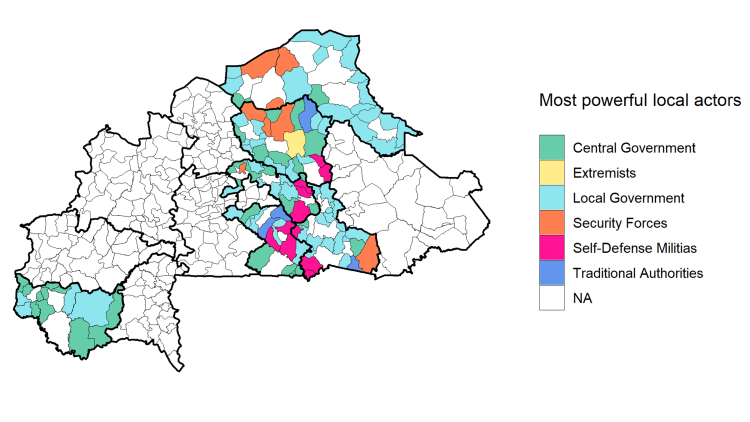
Given their growing influence, local governments could become an important gateway to rebuilding government legitimacy. In many areas, the elected local governments are trusted and legitimate representatives of local interests and concerns. However, their technical, administrative, and financial capacity remains limited. It is important not to overwhelm these local governments by increasing demands and expectations on them without proportionally increasing their funding and capacity. Local governments cannot be expected to act as a substitute for a failing central state, but there are ways to complement central government action by capitalising on the legitimacy local governments enjoy among their communities. For example,
local governments could be more closely involved in the planning and monitoring of security operations in their area;
local governments could be given direct influence or veto power over actions that could potentially damage government legitimacy in their area, not just with regard to local security and conflict resolution, but also in the areas of mining concessions and environmental protection, where central government actions tend to impact local populations in ways often unaccounted for; and, finally,
local governments already play a vital informal role in regulating self-defence militias, which have, in many cases, been incorporated as “volontaires pour la défense de la patrie” (VDP) and tend to consult frequently with municipal decision makers.
In these ways, elected local governments could effectively complement the central government vis-à-vis communities that are poorly represented in or poorly served by national politics.
Government Legitimacy and International Engagement in Fragile States
For donors and diplomats engaging with governments in fragile and conflict-affected states, strengthening legitimate governance remains a central objective. However, the fact that their government counterparts are part of the problem limits their ability to achieve this objective through traditional instruments of diplomacy, development, and security assistance. The collapse of civilian governments in Afghanistan, Guinea, and Mali has exposed the consequences of leaving issues of government legitimacy unaddressed in fragile states that massively depend on international support. The lesson from these experiences is that the international community should take a cautious approach to its partnership with governments in fragile and conflict-affected states.
One area in which caution is warranted is the insistence on rapid elections, when the electoral institutions are too weak or ill designed to produce universally recognised results. As much as elections may be a welcome justification for international actors to re-engage with a country (and, occasionally, a pretext for claiming that they are partnering with a “legitimate” government), they are no panacea for resolving problems of government legitimacy. Elections alone are not sufficient to produce sustainable and legitimate governments, if there are unresolved societal issues that undermine equitable political representation and the ability of the state to serve its citizens. Therefore, elections should be treated as sources of legitimacy only to the extent that they, empirically speaking, have such an effect. Elections that are fraudulent or of doubtful integrity can do outright harm to government legitimacy, as the Afghan and Guinean experiences suggest. Voter disenfranchisement, as in Burkina Faso, raises questions about government legitimacy among the non-participating citizens, and underscores that non-electoral legitimisation can be just as central as elections to a government’s acceptance by society. Finally, electoral politics can also be highly divisive, as the Guinean case illustrates. It would be wrong to assume that governments always act in the best, common interest of citizens and are therefore legitimate representatives of society as a whole, simply because they are elected.
Of vital importance for international actors in fragile states is an accurate understanding of state–society relations. International actors need to be able to identify which societal changes are the most important prerequisites for more legitimate governance (Blair and Winters 2020). Generally, this requires that foreign policy makers and donor organisations be informed by sufficiently detailed research and analysis and draw actionable conclusions from it.
Finally, there are many ways in which government legitimacy can and needs to be strengthened beyond elections (see also: Risse and Stollenwerk 2018; Glawion 2020). The political and societal changes that are necessary for a more legitimate government almost always include reform steps, such as electoral process reform, anti-corruption measures, and reforms of the security sector. One way in which international actors can promote such changes is by identifying reform priorities and conditioning international assistance on specific reform steps. However, external pressure alone is insufficient, as any reform effort also requires a coalition of political and societal forces that have an actual stake in the reform’s success. Therefore, top-down pressure and incentives for governments should always be complemented or even preceded by efforts to shape reform coalitions internally. Engineering such coalitions is challenging, because it requires working with civil society organisations and with committed individuals within the political system. This is something foreign policy makers prefer to avoid, because it entails interference in internal political affairs, and it can strain relations with governments if it is not done transparently. Yet, it may be the only way forward in settings where state–society relations are fragile and the government is part of the problem.
Footnotes
References
Anderson, Christopher J. et al. (2005), Losers’ Consent: Elections and Democratic Legitimacy, Oxford: Oxford University Press.
Berman, Eli et al. (2019), Election Fairness and Government Legitimacy in Afghanistan, in: Journal of Economic Behavior & Organization, 168, 12, 292–317, https://doi.org/10.1016/j.jebo.2019.10.011.
Blair, Robert, and Matthew Winters (2020), Foreign Aid and State-Society Relations: Theory, Evidence, and New Directions for Research, in: Studies in Comparative International Development, 55, 6, 123–142.
Englebert, Pierre (1998), Burkina Faso: Unsteady Statehood in West Africa, New York: Routledge.
Glawion, Tim (2020), The Security Arena in Africa: Local Order-Making in the Central African Republic, Somaliland, and South Sudan, Cambridge: Cambridge University Press.
Greene, Amanda (2016), Consent and Political Legitimacy, in: David Sobel, Peter Vallentyne, and Steven Wall (eds), Oxford Studies in Political Philosophy, Vol. 2, Chap. 3, Oxford: Oxford University Press, 71–97.
International Crisis Group (2021), Transition au Mali: préserver l’aspiration au changement, ICG Africa Report No. 304, 21 September, https://d2071andvip0wj.cloudfront.net/304-transition-au-mali.pdf (15 December 2021).
Jeune Afrique (2021), Burkina Faso: des centaines de manifestants demandent le départ du président Kaboré, 27 November, www.jeuneafrique.com/1272602/politique/burkina-faso-des-centaines-de-manifestants-demandent-le-depart-du-president-kabore/ (15 December 2021).
Levi, Margaret, Audrey Sacks, and Tom Tyler (2009), Conceptualizing Legitimacy, Measuring Legitimating Beliefs, in: American Behavioral Scientist, 53, 3, 354–375, https://doi.org/10.1177%2F0002764209338797.
Lierl, Malte (2019), Promoting Good Governance in Africa: Three Popular Misconceptions, GIGA Focus Africa, 3, July, www.giga-hamburg.de/en/publications/11571809-promoting-good-governance-africa-three-popular-misconceptions/ (15 December 2021).
Matei, Florina C. (2021), Mali: The Hot and Cold Relationship Between Military Intervention and Democratic Consolidation, in: Oxford Research Encyclopedia of Politics, https://doi.org/10.1093/acrefore/9780190228637.013.1882.
Mcloughlin, Claire (2015), When Does Service Delivery Improve the Legitimacy of a Fragile or Conflict-Affected State?, in: Governance, 28, 3, 341–356.
Risse, Thomas, and Eric Stollenwerk (2018), Legitimacy in Areas of Limited Statehood, in: Annual Review of Political Science, 21, 403–418, https://doi.org/10.1146/annurev-polisci-041916-023610.
Schmelzle, Cord, and Eric Stollenwerk (2018), Virtuous or Vicious Circle? Governance Effectiveness and Legitimacy in Areas of Limited Statehood, in: Journal of Intervention and Statebuilding, 12, 4, 449–467, www.mendeley.com/catalogue/eaea80a5-192c-37f3-beb0-2bb5aa01fcf3/ (15 December 2021).
UNHCR (2021), Record Numbers Forced to Flee Ongoing Violence in Burkina Faso, 23 July, www.unhcr.org/news/briefing/2021/7/60fa77864/record-numbers-forced-flee-ongoing-violence-burkina-faso.html (11 November 2021).
General Editor GIGA Focus
Editor GIGA Focus Africa
Editorial Department GIGA Focus Africa
Regional Institutes
Research Programmes
How to cite this article
Lierl, Malte (2021), Elections and Government Legitimacy in Fragile States, GIGA Focus Africa, 7, Hamburg: German Institute for Global and Area Studies (GIGA), https://nbn-resolving.org/urn:nbn:de:0168-ssoar-76659-2
Imprint
The GIGA Focus is an Open Access publication and can be read on the Internet and downloaded free of charge at www.giga-hamburg.de/en/publications/giga-focus. According to the conditions of the Creative-Commons license Attribution-No Derivative Works 3.0, this publication may be freely duplicated, circulated, and made accessible to the public. The particular conditions include the correct indication of the initial publication as GIGA Focus and no changes in or abbreviation of texts.
The German Institute for Global and Area Studies (GIGA) – Leibniz-Institut für Globale und Regionale Studien in Hamburg publishes the Focus series on Africa, Asia, Latin America, the Middle East and global issues. The GIGA Focus is edited and published by the GIGA. The views and opinions expressed are solely those of the authors and do not necessarily reflect those of the institute. Authors alone are responsible for the content of their articles. GIGA and the authors cannot be held liable for any errors and omissions, or for any consequences arising from the use of the information provided.



















